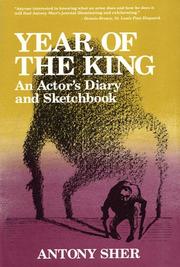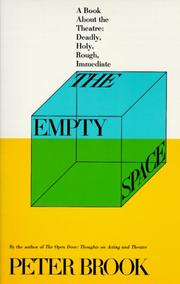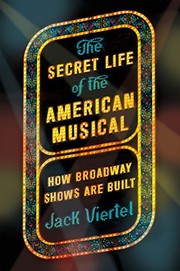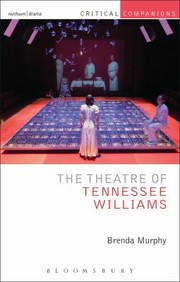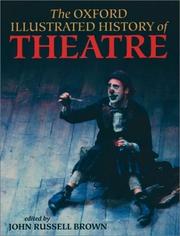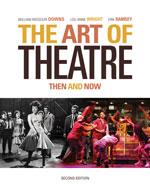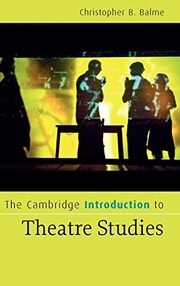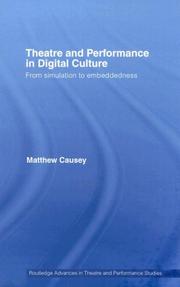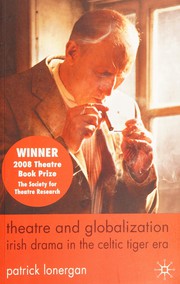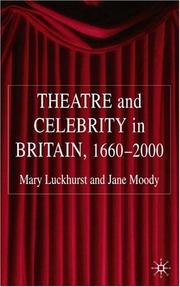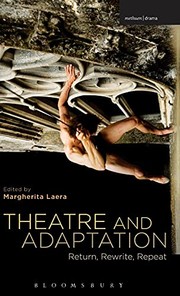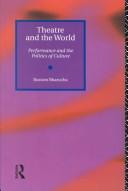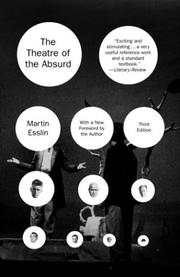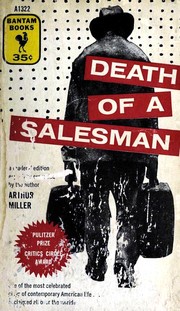Are you a theatre enthusiast looking for the perfect book on theatre to add to your collection? Look no further! We’ve curated a list of the 20 best theatre books that every drama lover should read. From in-depth analyses of iconic plays to behind-the-scenes looks at the world of theater, these books offer a wealth of knowledge and insight into the captivating world of stagecraft. Whether you’re a seasoned actor, a budding playwright, or simply enjoy the magic of live performances, these books are sure to ignite your passion for the theatre. Let’s dive into the fascinating world of theatre with these 20 must-read books!
Contents
- 1 20 Best Theatre Books
- 2 The Year of the King: An Actor’s Diary and Sketchbook
- 3 The Empty Space: A Book About the Theatre: Deadly, Holy, Rough, Immediate
- 4 The Secret Life of the American Musical: How Broadway Shows Are Built
- 5 The Theatre of Tennessee Williams
- 6 The Oxford Illustrated History of Theatre
- 7 The Art of Theatre: Then and Now
- 8 The Cambridge Introduction to Theatre Studies
- 9 Theatre and Performance in Digital Culture: From Simulation to Embeddedness
- 10 Theatre and Globalization: Irish Drama in the Celtic Tiger Era
- 11 Theatre and Celebrity in Britain, 1660-2000
- 12 Theatre and Adaptation: Return, Rewrite, Repeat
- 13 Theatre and the World: Performance and the Politics of Culture
- 14 Theater of the Oppressed
- 15 Theatre of the Absurd
- 16 The Theatre and Its Double
- 17 The Oresteia
- 18 Waiting for Godot
- 19 Hamlet
- 20 The Glass Menagerie
- 21 Death of a Salesman
- 22 Final Thoughts on Best Theatre Books
- 23
20 Best Theatre Books
The Year of the King: An Actor’s Diary and Sketchbook
by Antony Sher
The Year of the King: An Actor’s Diary and Sketchbook by Antony Sher is a captivating book about theatre that provides an intimate look into the process of preparing for a role. Through his diary entries and sketches, Sher takes the reader on a journey as he immerses himself in the character of Richard III for the Royal Shakespeare Company’s production. The book offers a rare and insightful glimpse into the daily life of an actor, from the physical and vocal exercises to the emotional and psychological challenges of inhabiting a complex character.
Sher’s candid and engaging writing style pulls readers into the world of the theatre, allowing them to experience the highs and lows of the creative process. The book is a treasure trove for theatre enthusiasts, offering behind-the-scenes anecdotes, personal reflections, and artistic sketches that bring the world of the stage to life. Whether you’re an aspiring actor, a dedicated theatre-goer, or simply curious about the inner workings of the stage, this theatre book is a must-read for anyone interested in the art of performance.
The Empty Space: A Book About the Theatre: Deadly, Holy, Rough, Immediate
by Peter Brook
The Empty Space: A Book About the Theatre: Deadly, Holy, Rough, Immediate by Peter Brook is a groundbreaking book about theatre that explores the essence of the art form. Through a series of essays, Brook delves into the different qualities of the theatre experience, describing it as deadly, holy, rough, and immediate. He examines the impact of these qualities on both the audience and the performers, offering valuable insights into the power and potential of theatre.
Brook’s writing is engaging and thought-provoking, drawing on his extensive experience as a renowned director and practitioner of the theatre arts. He challenges traditional notions of theatre and encourages readers to reconsider their understanding of the art form. Whether you’re a seasoned theatre professional or a newcomer to the world of theatre, this theatre book offers a fresh perspective that will inspire and provoke contemplation.
The Secret Life of the American Musical: How Broadway Shows Are Built
by Jack Viertel
The Secret Life of the American Musical: How Broadway Shows Are Built by Jack Viertel is a captivating and insightful book on theatre that takes readers behind the scenes of Broadway productions. Viertel, a seasoned Broadway producer and insider, provides a comprehensive overview of the mechanics and artistry that go into creating successful musicals. He delves into the structure of a musical, dissecting its components and revealing the secrets of what makes a show memorable and impactful.
Through engaging storytelling and analysis, Viertel explores the history of the American musical, offering fascinating anecdotes and behind-the-curtain stories of some of the most beloved productions. He also dissects popular musicals, such as “West Side Story” and “The Book of Mormon,” to uncover the elements that make them enduring hits. Whether you’re a seasoned theatre aficionado or a newcomer to the world of musicals, this theatre book offers a compelling and enriching look at the art of creating a successful Broadway show.
The Theatre of Tennessee Williams
by Brenda Murphy
The Theatre of Tennessee Williams by Brenda Murphy is a comprehensive and insightful book about the dramatic works of one of America’s most celebrated playwrights. This authoritative theatre book offers a deep exploration of Williams’s iconic plays, such as A Streetcar Named Desire, Cat on a Hot Tin Roof, and The Glass Menagerie.
Murphy’s analysis delves into the complex characters, themes, and symbolism that are prevalent throughout Williams’s body of work. She also provides valuable historical and cultural context, shedding light on the impact of Williams’s plays in the mid-20th century and their enduring relevance today.
Readers will gain a greater appreciation for Williams’s contributions to American drama as Murphy skillfully examines the playwright’s unique storytelling techniques and the evolution of his style over time. Whether you’re a seasoned theatre enthusiast or a student of dramatic literature, The Theatre of Tennessee Williams is a must-read for anyone interested in delving into the rich and compelling world of Williams’s plays.
The Oxford Illustrated History of Theatre
by John Russell Brown
The Oxford Illustrated History of Theatre by John Russell Brown is a captivating and informative exploration of the rich and diverse world of performance. This comprehensive book on theatre takes readers on a journey through the evolution of theatrical traditions, from ancient Greek drama to contemporary experimental productions. With stunning illustrations and insightful commentary, readers will gain a deep understanding of the cultural and artistic significance of theatre throughout history. From Shakespearean plays to avant-garde performances, this theatre book offers a vibrant and engaging look at the power of the stage to move, inspire, and provoke thought. Whether you’re a seasoned theatre enthusiast or a newcomer to the world of performance, this book about theatre is sure to enrich your appreciation for the art form and its enduring impact on society. Dive into the pages of The Oxford Illustrated History of Theatre and discover the magic and artistic ingenuity that have captivated audiences for centuries.
The Art of Theatre: Then and Now
by William Missouri Downs, Lou Anne Wright, and Erik Ramsey
The Art of Theatre: Then and Now is a comprehensive and engaging book about the world of theatre. Written by William Missouri Downs, Lou Anne Wright, and Erik Ramsey, this theatre book provides a fascinating overview of the history and evolution of the art form. It delves into the rich traditions and groundbreaking innovations that have shaped the theatre world, offering readers a deep understanding of its past and present.
Through insightful analysis and vivid examples, the authors bring to life the key elements of theatre, from performance and design to directing and writing. Readers will gain a profound appreciation for the diverse and dynamic nature of theatre, as well as its enduring impact on culture and society.
Whether you are a seasoned theatre enthusiast or a newcomer to the world of performing arts, this book on theatre is a must-read. It will inspire, educate, and captivate anyone with an interest in the magic of the stage.
The Cambridge Introduction to Theatre Studies
by Christopher B. Balme
The Cambridge Introduction to Theatre Studies by Christopher B. Balme is a comprehensive and engaging book on theatre that provides a thorough overview of the history, theory, and practice of theatre. Balme explores the various aspects of theatre, from its origins in ancient ritual to its modern-day forms and functions. He delves into the role of theatre in society, its relationship to other art forms, and the impact of technology on performance. Balme’s insightful analysis and accessible writing style make this book about theatre an essential resource for students, scholars, and anyone with an interest in the performing arts. Whether you are new to theatre studies or a seasoned theatre enthusiast, this theatre book offers a wealth of knowledge and a fresh perspective on the world of performance.
Theatre and Performance in Digital Culture: From Simulation to Embeddedness
by Matthew Causey
Theatre and Performance in Digital Culture: From Simulation to Embeddedness by Matthew Causey is a groundbreaking book about theatre that explores the intersection of performance and digital technology. Causey delves into how digital culture has transformed the way we create, experience, and understand theatre, blurring the lines between the physical and virtual worlds. He examines the impact of digital technologies on the creation of performances, the role of virtual reality and simulation in theatrical experiences, and the ways in which digital culture has become embedded in the fabric of contemporary theatre practice.
Causey’s engaging and insightful exploration of the relationship between theatre and digital culture makes this theatre book a must-read for anyone interested in the intersection of technology and performance. Whether you’re a book on theatre enthusiast or a digital culture aficionado, this book offers a thought-provoking look at the ways in which digital technology is shaping the future of theatre and performance.
Theatre and Globalization: Irish Drama in the Celtic Tiger Era
by Patrick Lonergan
Theatre and Globalization: Irish Drama in the Celtic Tiger Era by Patrick Lonergan is a compelling exploration of the intersection between Irish theatre and the forces of globalization during the economic boom of the Celtic Tiger era. Lonergan’s book delves into the ways in which Irish playwrights and theatre practitioners responded to the rapid changes brought about by globalization, from the influx of multinational corporations to the impact of technology and the internet on Irish society.
This book on theatre offers a fascinating analysis of how Irish drama grappled with questions of identity, economy, and culture in the face of globalization, making it a valuable resource for anyone interested in the relationship between theatre and contemporary social issues. Lonergan’s insightful examination of Irish theatre during this period provides a nuanced understanding of how theatre can both reflect and shape the cultural and political landscape of a nation, making this a must-read for anyone interested in the cultural impact of globalization on theatre.
Theatre and Celebrity in Britain, 1660-2000
by Mary Luckhurst
Theatre and Celebrity in Britain, 1660-2000 by Mary Luckhurst is a captivating exploration of the intersection between fame and the stage throughout British history. This compelling theatre book delves into the ways in which celebrity culture has influenced the world of performance, from the Restoration period to the modern era. Luckhurst examines the lives and careers of renowned actors, playwrights, and directors, shedding light on the evolving nature of fame within the context of British theatre.
From the glittering allure of the Georgian stage to the rise of the West End and the impact of television and film, Luckhurst’s book about theatre offers a comprehensive survey of the enduring relationship between celebrity and the dramatic arts. Through meticulous research and insightful analysis, readers are treated to a fascinating narrative that illuminates the captivating and often complex connections between theatre and celebrity. Theatre and Celebrity in Britain, 1660-2000 is a must-read for anyone with a passion for the performing arts and a keen interest in the cultural history of celebrity.
Theatre and Adaptation: Return, Rewrite, Repeat
by Margherita Laera
Theatre and Adaptation: Return, Rewrite, Repeat by Margherita Laera is a captivating exploration of the ways in which theatrical works are adapted and reimagined. Laera delves into the intricate process of returning to existing texts, rewriting them, and repeating the cycle of adaptation. This book on theatre delves into the dynamic relationship between the source material and the new iteration, revealing the complexities and nuances of adaptation in the world of performance. Laera’s insightful analysis offers a thought-provoking examination of the creative and transformative power of adaptation in theatre, shedding light on the ways in which it shapes and reshapes our understanding of familiar stories and characters. Whether you’re a seasoned theatre enthusiast or a newcomer to the world of performance, this book about theatre is sure to inspire a deeper appreciation for the art of adaptation and its impact on the theatrical landscape.
Theatre and the World: Performance and the Politics of Culture
by Rustom Bharucha
Theatre and the World: Performance and the Politics of Culture by Rustom Bharucha is a thought-provoking book about theatre that delves into the intricate relationship between performance and the socio-political landscape. Bharucha’s insightful exploration examines how theatre is not only a form of artistic expression, but also a powerful tool for challenging and reshaping cultural and political norms.
Through a series of case studies and analyses of theatre from around the world, Bharucha uncovers the ways in which theatre can serve as a platform for marginalized voices, resistance, and social change. He also addresses the complexities of cultural exchange and the impact of globalization on theatre practices.
This theatre book is a must-read for anyone interested in the intersection of performance, politics, and culture. Bharucha’s engaging writing style and comprehensive research make this book on theatre an essential addition to the library of anyone passionate about the transformative power of theatre.
Theater of the Oppressed
by Augusto Boal
Theater of the Oppressed is a groundbreaking book on theatre written by Augusto Boal, a Brazilian theatre director, and activist. Boal’s work is a powerful exploration of the ways in which theatre can be used as a tool for social and political change. In this book about theatre, Boal introduces the concept of “spect-actors,” individuals who both watch and participate in the theatrical experience, breaking down the traditional boundaries between performer and audience.
Boal’s Theatre of the Oppressed is a call to action, urging readers to use theatre as a means of challenging oppression and inequality. Through a series of exercises and techniques, Boal invites readers to explore the potential of theatre as a form of resistance and empowerment.
For anyone interested in using the arts as a platform for social change, Theatre of the Oppressed is an essential theatre book. Boal’s revolutionary ideas continue to inspire activists, artists, and educators around the world, making this book on theatre a timeless and essential resource.
Theatre of the Absurd
by Martin Esslin
Theatre of the Absurd, written by Martin Esslin, is a seminal book on theatre that explores the works of avant-garde playwrights such as Samuel Beckett, Eugene Ionesco, and Harold Pinter. Esslin delves into the concept of the absurd in drama, analyzing how these playwrights use unconventional narratives and surreal elements to convey the existential angst of the post-World War II era.
Esslin’s book about theatre examines the themes of alienation, meaninglessness, and the breakdown of communication in the modern world. He argues that the Theatre of the Absurd reflects the absurdity of human existence and the futility of trying to find purpose in a chaotic and irrational world.
Through insightful analysis and in-depth research, Esslin provides readers with a comprehensive understanding of the origins and development of the absurd theatre movement. Theatre of the Absurd is a must-read for anyone interested in exploring the boundaries of traditional theatrical conventions and the innovative approaches to storytelling in the theatre.
The Theatre and Its Double
by Antonin Artaud
The Theatre and Its Double by Antonin Artaud is a groundbreaking book on theatre that challenges traditional notions of performance and pushes the boundaries of what theatre can be. Artaud, a French playwright, actor, and director, explores the concept of the “double” in theatre, suggesting that there is a parallel world of performance that exists beyond the confines of the stage.
In this book about theatre, Artaud delves into the idea of a “theatre of cruelty,” advocating for a more visceral and raw form of performance that transcends language and rationality. He argues that theatre should be a powerful and transformative experience that shakes audiences to their core.
Artaud’s passionate and provocative writing has had a profound influence on the world of theatre, inspiring countless artists to reexamine their approach to performance. The Theatre and Its Double is a must-read for anyone interested in the avant-garde and experimental aspects of theatre.
The Oresteia
by Aeschylus
The Oresteia is a compelling trilogy of Greek tragedies by Aeschylus, centered around the cursed House of Atreus. This ancient masterpiece is a pivotal work in the history of drama and a must-read for anyone interested in the origins of theatre. The trilogy consists of three plays: Agamemnon, The Libation Bearers, and The Eumenides, each exploring themes of justice, revenge, and the consequences of violence. The story follows the aftermath of the Trojan War, as Agamemnon returns home to face the wrath of his vengeful wife, Clytemnestra, and their son, Orestes, who seeks to avenge his father’s murder. Aeschylus’ rich language and powerful storytelling make The Oresteia a timeless and thought-provoking exploration of human nature and the complexities of morality. This classic theatre book is a masterful example of ancient Greek drama and remains a captivating and relevant read for anyone interested in the art of storytelling.
Waiting for Godot
by Samuel Beckett
Waiting for Godot, written by Samuel Beckett, is a landmark play in the realm of theatre. This absurdist masterpiece challenges the traditional notions of plot and character, as it follows two characters, Vladimir and Estragon, as they wait endlessly for a man named Godot. Set against a barren and desolate landscape, the play delves into existential themes, drawing the audience into a thought-provoking exploration of the human condition.
Beckett’s use of language and dialogue creates a unique and compelling atmosphere, as the characters engage in philosophical discussions and engage in absurd, yet comical, interactions. The play’s exploration of the passage of time and the futility of human existence resonates deeply with audiences, making it a timeless classic that continues to captivate and challenge theatre-goers.
Waiting for Godot is a must-read for anyone interested in the theatre, as it exemplifies the power of the stage to provoke introspection and contemplation. This iconic work continues to be celebrated as a seminal piece of literature within the realm of theatrical arts.
Hamlet
by William Shakespeare
Hamlet, a timeless tragedy written by William Shakespeare, is a captivating tale of revenge, betrayal, and madness set in the royal court of Denmark. The play follows the young Prince Hamlet as he grapples with the unexpected death of his father, the king, and the hasty marriage of his mother to his uncle. As Hamlet seeks to uncover the truth behind his father’s death, he becomes embroiled in a web of deceit and treachery, ultimately leading to a series of tragic events.
Shakespeare’s masterful use of language and his exploration of complex human emotions make Hamlet a compelling and thought-provoking read for anyone interested in the human condition. This timeless classic continues to captivate audiences and readers alike with its powerful themes and unforgettable characters. Whether you’re a fan of drama, tragedy, or simply enjoy a good book about theatre, Hamlet is a must-read for anyone seeking a deeper understanding of the human experience.
The Glass Menagerie
by Tennessee Williams
The Glass Menagerie, a poignant play by Tennessee Williams, is a timeless classic that delves into the complexities of family dynamics and the pursuit of dreams. Set in St. Louis during the 1930s, the story revolves around the Wingfield family – Amanda, a determined yet nostalgic mother, her fragile and introverted daughter Laura, and her restless son Tom, who longs to escape the confines of his family life and pursue his own ambitions. The play unfolds as Tom reflects on his memories of his family, particularly his sister Laura and her delicate collection of glass figurines, her ‘menagerie’.
Williams masterfully weaves themes of disillusionment, longing, and the elusive nature of dreams throughout the play, creating a deeply moving and thought-provoking theatrical experience. The Glass Menagerie is a compelling exploration of the human experience, as well as a poignant reflection on the power of memory and the enduring weight of familial bonds. This theatre book has continued to captivate audiences and readers since its first performance, making it a must-read for anyone interested in delving into the complexities of family dynamics and the pursuit of dreams.
Death of a Salesman
by Arthur Miller
Death of a Salesman, written by Arthur Miller, is a compelling and thought-provoking play that delves into the complexities of the American Dream and the impact of delusion and self-deception. Set in the late 1940s, the story follows Willy Loman, a traveling salesman who is struggling to come to terms with his own sense of failure and the disillusionment of his family.
As a book about theatre, Death of a Salesman explores the themes of identity, success, and the human condition with raw emotion and powerful storytelling. Through Willy Loman’s unraveling mental state and his strained relationships with his sons, Biff and Happy, the play offers a poignant reflection on the harsh realities of life and the pursuit of happiness.
Arthur Miller’s timeless classic continues to resonate with audiences as it presents a timeless critique of the American Dream and the toll it takes on individuals and their families. Death of a Salesman is a must-read for anyone interested in delving into the depths of human nature and the complexities of the human experience.
Final Thoughts on Best Theatre Books
These 20 best books about Theatre provide a comprehensive look at the world of stage productions, acting, directing, and the history of theatre. Whether you’re an aspiring actor, a seasoned director, or simply a theatre enthusiast, these books offer valuable insights and knowledge that will enrich your understanding of this captivating art form. From classic texts to modern interpretations, there’s something for everyone in this curated list of essential reads for anyone passionate about the theatre.
Which book about Theatre is best?
The best book on Theatre can vary with personal preference, but three widely recommended titles are:
- The Year of the King: An Actor’s Diary and Sketchbook by Antony Sher,
- The Empty Space: A Book About the Theatre: Deadly, Holy, Rough, Immediate by Peter Brook,
- The Secret Life of the American Musical: How Broadway Shows Are Built by Jack Viertel.
Each offers valuable insights and could be a great starting point.
What are the best books to learn about Theatre?
For those looking to learn about Theatre, there is a wealth of literature that can provide a comprehensive understanding of the subject. Some of the most highly recommended books include:
- The Year of the King: An Actor’s Diary and Sketchbook by Antony Sher,
- The Empty Space: A Book About the Theatre: Deadly, Holy, Rough, Immediate by Peter Brook,
- The Secret Life of the American Musical: How Broadway Shows Are Built by Jack Viertel,
- The Theatre of Tennessee Williams by Brenda Murphy,
- The Oxford Illustrated History of Theatre by John Russell Brown,
- The Art of Theatre: Then and Now by William Missouri Downs, Lou Anne Wright, and Erik Ramsey,
- The Cambridge Introduction to Theatre Studies by Christopher B. Balme,
- Theatre and Performance in Digital Culture: From Simulation to Embeddedness by Matthew Causey,
- Theatre and Globalization: Irish Drama in the Celtic Tiger Era by Patrick Lonergan,
- Theatre and Celebrity in Britain, 1660-2000 by Mary Luckhurst
These books offer a range of perspectives on Theatre, covering various aspects and approaches to the subject.
What are the best books about Theatre?
The best books about Theatre are:
- The Year of the King: An Actor’s Diary and Sketchbook by Antony Sher,
- The Empty Space: A Book About the Theatre: Deadly, Holy, Rough, Immediate by Peter Brook,
- Theatre and Adaptation: Return, Rewrite, Repeat by Margherita Laera,
- Theatre and the World: Performance and the Politics of Culture by Rustom Bharucha,
- Theatre and Performance in Digital Culture: From Simulation to Embeddedness by Matthew Causey,
- The Art of Theatre: Then and Now by William Missouri Downs, Lou Anne Wright, and Erik Ramsey.
Each offers unique insights into the subject. While these books about Theatre are highly regarded, it’s important to note that any list of ‘best’ books is subjective and reflects a range of opinions.
What are the best Theatre books of all time?
Choosing the best Theatre books of all time can vary depending on who you ask, but five titles that are often celebrated include
- The Year of the King: An Actor’s Diary and Sketchbook by Antony Sher,
- The Empty Space: A Book About the Theatre: Deadly, Holy, Rough, Immediate by Peter Brook,
- The Oxford Illustrated History of Theatre by John Russell Brown,
- Theatre and Performance in Digital Culture: From Simulation to Embeddedness by Matthew Causey,
- and Theatre and Adaptation: Return, Rewrite, Repeat by Margherita Laera.
Each of these books has made a significant impact in the field of Theatre and continues to be influential today.

